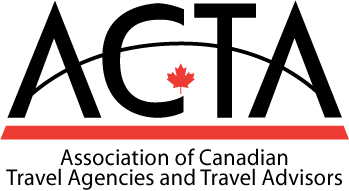Consultations on Basic Fare Requirements
ACTA has been advised that the Canadian Transportation Agency (CTA) is requesting comments from interested stakeholders on the basic fare requirement, including the circumstances in which an air carrier should be exempted from identifying a basic fare in their tariff.
Background
The CTA regulates domestic air transportation pursuant to the Canada Transportation Act (Act) and the Air Transportation Regulations (ATR).
The Act requires that all Canadian air carriers holding a domestic licence have a tariff, which is a schedule of their fares, rates, charges and terms and conditions of carriage applicable to the provision of their services and other incidental services. Domestic licensees cannot apply any fares, rates, charges and terms and conditions of carriage to their passenger, which are not contained within their tariff.
As part of an air carrier’s tariff obligations under paragraph 67(1)(b) of the Act, they must identify a basic fare for all routes offered by a licensee. The “basic fare” is defined in section 55 of the Act as:
(a) the fare in the tariff of the holder of a domestic licence that has no restrictions and represents the lowest amount to be paid for one-way air transportation of an adult with reasonable baggage between two points in Canada, or
(b) where the licensee has more than one such fare between two points in Canada and the amount of any of those fares is dependent on the time of day or day of the week of travel, or both, the highest of those fares.
Situation
On January 31, 2019, the CTA, in accordance with paragraph 80(1)(c) of the Act, exempted Swoop from compliance with paragraph 67 (1)(b) of the Act for a period of 180 days.
Swoop states that, for modern air travel, the setting of fares is dynamic, individualized and flexible, particularly for ultra-low-cost carriers (ULLCs). It contends that the provisions of the CTA and ATR, from which it is seeking an exemption, did not contemplate the modern air travel marketplace and business models such as those used by ULCCs, and that compliance with them would be disruptive and counter to its business model.
The CTA found sufficient arguments and evidence to establish, on a preliminary basis, that compliance with paragraph 67 (1)(b) is “unnecessary, undesirable or impractical”. According to the CTA, the legal requirement that a basic fare has no restrictions and allows for the transportation of baggage at no additional cost means that, in practice, for most carriers, the basic fare listed in the tariff is higher than many of the fares on offer in the marketplace.
However, to ensure a comprehensive understanding of the implications of a longer-term exemption from compliance with paragraph 67(1)(b), the CTA is undertaking consultations to obtain input regarding any future exemptions which might be considered and the factors relevant in determining whether they should be granted.
Feedback
ACTA will be providing comment on the following matters specifically identified:
1) The prevalence of basic fares across differing business models in Canada;
2) The relevance of a basic fare to passengers;
3) The impact of the basic fare requirement on industry competitiveness; and
4) Factors that may be relevant to the CTA in determining whether a carrier’s compliance with this provision is “unnecessary, undesirable, or impractical”.
Submission to the CTA must be made by April 30, 2019.
